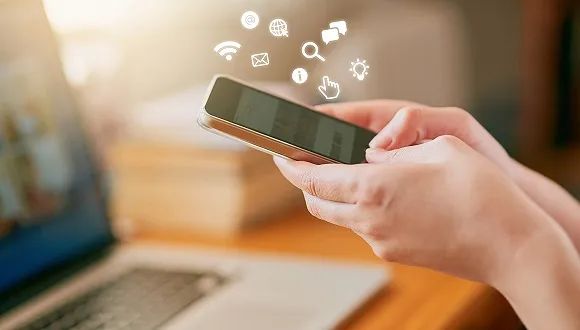
Reporter: Lu Keyan
“
The tool primarily relies on the Bluetooth functionality of mobile phones.
“
On April 10, Apple CEO Tim Cook and Google CEO Sundar Pichai jointly announced on Twitter that the two companies will collaborate to connect Apple and Android mobile systems to launch a plan for tracking the spread of the novel coronavirus.
This plan will use Bluetooth to establish a network, storing a large amount of data on phones that have been in close contact. Public health agencies can access this data to understand whether the users behind it have been diagnosed with COVID-19. On the other hand, this system will also inform users if they have been in close contact with an infected person.
For Chinese mobile users, this plan may sound familiar. The health codes launched in various regions also track user locations to understand their movements.
According to official explanations, this “Bluetooth plan” will not track users’ actual locations but will obtain signals from nearby phones every five minutes and store the connections between them in a database. If a person’s COVID-19 test result is positive, they will be informed that they have been infected, and the system can notify other phone users who have been in close contact with them in the past few days, based on the Bluetooth connections established due to proximity.
This plan is not mandatory but operates on a voluntary basis. After diagnosis, users can decide whether to submit their test results.
It is reported that Apple and Google will release an application programming interface (API) in May to connect the two systems through public health department applications, which users can download.
In the coming months, the two companies will build tracking features into the operating systems, allowing every user of iOS or Android phones to utilize this functionality.
Contact tracing (which includes identifying the contact history of infected individuals and attempting to prevent them from infecting others) is considered one of the best strategies for controlling the pandemic. However, using digital surveillance technology for this purpose may raise significant privacy concerns. Earlier this week, the American Civil Liberties Union expressed concerns about tracking users through phone data, stating that any system needs to limit its scope and avoid compromising user privacy.
Therefore, Apple and Google have implemented several measures to prevent privacy breaches. For example, when broadcasting information via Bluetooth, an anonymous key is sent periodically, with these keys cycling every 15 minutes to protect privacy. Even if someone shares their infection status, the application will only share the keys for the specific periods when they were contagious.
This tool still has some drawbacks, such as potentially marking adjacent rooms where there are actually no individuals present with the user, causing unnecessary anxiety. Additionally, it heavily relies on smartphones and related applications, which makes it less effective in areas with lower connectivity.
Currently, Apple and Google are still discussing the specific implementation plan of this initiative with relevant authorities.
Unauthorized reproduction is prohibited
